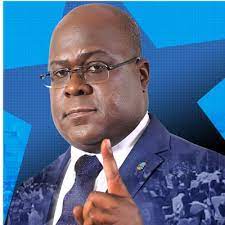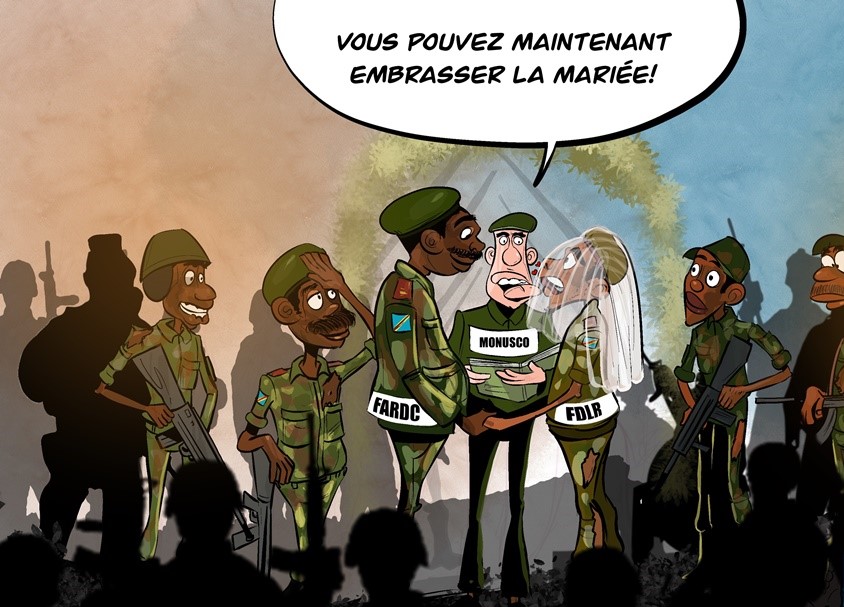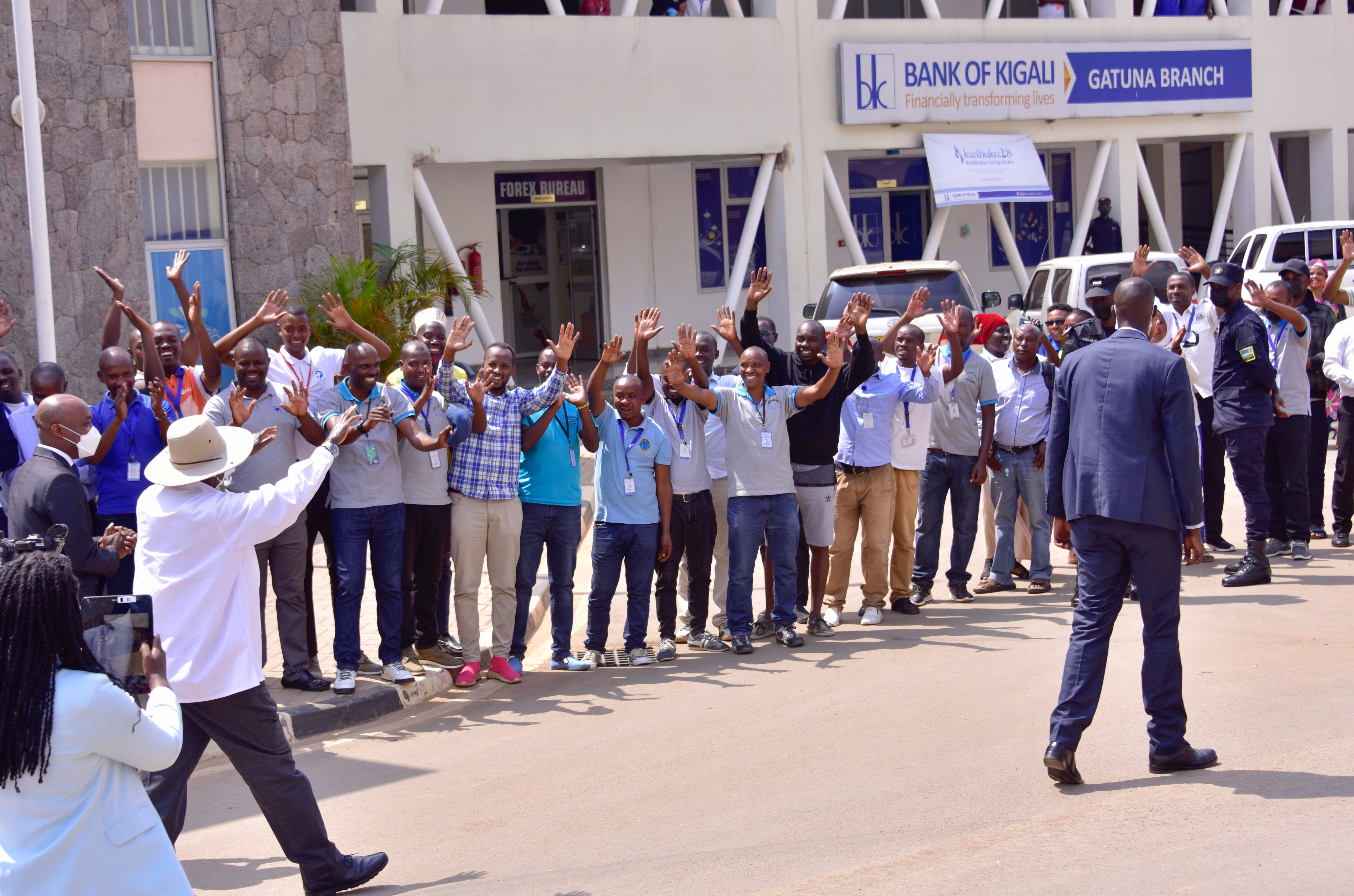Regional
Tshisekedi’s war option spells disaster

In
an interview with The Financial Times, on July 5, the Democratic Republic of
Congo (DRC) President, Felix Tshisekedi, warned that his country would go to
war with Rwanda on grounds that the neighboring country is giving support to
M23 rebels who recently capture the border town of Bunagana and other areas in eastern
DRC.
“This
possibility cannot be ruled out. If Rwanda’s provocation continues, we will not
sit and do nothing about it. We are not weak,” Tshisekedi told the Financial
Times.
He
added: “We want peace…but if push comes to shove. . . at one point we will take
action.”
Rwanda
has, on numerous occasions, denied the accusations of supporting the M23 rebels
against the DRC government, stating that the war between DRC and M23 rebels is
an internal problem that should be solved by Kinshasa authorities and the
rebels. In a recent interview, on Rwanda's Liberation Day, on July 4, President
Paul Kagame said his country engaged with DRC authorities several times on the
M23 issue, but no tangible results were obtained.
During
the same interview, Kagame expressed concerns that Congolese forces (FARDC), have formed alliance with the anti-Rwanda armed group, FDLR, which comprises
remnants of ex-FAR and interahamwe who committed the genocide against the Tutsi
in Rwanda in 1994.
This is a serious security threat to Rwanda.
Ironically, FDLR is fighting along Congolese forces with the full knowledge of
UN peacekeeping force (MONUSCO). The UN body has not condemned such act.
For Tshisekedi to think of war with Rwanda as
an option is a devil’s alternative which cannot solve the prevailing crisis in
eastern DRC. Although Kinshasa mentions only M23 as the problem, eastern DRC
has more than 130 armed groups that have made the region ungovernable for
decades. Secondly, in 2013, the Congolese
government signed a peace deal with the M23 rebels
in the Kenyan Capital Nairobi, which until today, the government has never
honored to repatriate and incorporate M23 fighters.
Tshisekedi to turn his back against the peace deal and
instead brand M23 as a terrorist group is a new development that the region and
international community should beg to understand. Why turn around and start
calling the rebels terrorists now? The pertinent question here is, how did the
government sign an agreement with a terrorist group? The fact that M23 rebels
speak Kinyarwanda does not make them Rwandans. They are legitimate citizens of DRC,
and therefore, Rwanda has nothing to with them.
Tshisekedi’s
claim that Rwanda has vested interests in his country’s resources is cynical
and diversionary. In the interview with Financial Times, the DRC leader claimed
that, “Rwanda has illicit vested economic interests in the DRC…As long as order
is not restored in eastern DRC, as long as lawlessness and insecurity prevail,
Rwanda will take advantage of that.”
Tshisekedi
knows well at the back of his mind that
Rwanda’s concern in DRC is about security.
It is about the armed terror groups like; FDLR, RUD-Urunana and others, supported by the Congolese army, FARDC, with
intentions to attack Rwanda. In fact, it’s the FDLR being supported by the DRC
authorities that has been mentioned by the UN group of experts for dealing in
mineral exploitation and trade with army commanders and politicians in eastern
DRC.
The FDLR
does not represent Rwanda. If DRC disowns FDLR, Rwanda will have no issues with
DRC.
The
2008 UN group of experts report, section 73, notes that, “the Group estimates
that FDLR is reaping profits possibly worth millions of dollars a year from the
trade of minerals in eastern Democratic Republic of the Congo, in particular
cassiterite, gold, coltan and wolframite. The minerals business is a high
priority for FDLR, whose commanders detach units to tax and control the trade
of minerals in a system they call “non-conventional logistics.”
The
assertion by Tshisekedi that if Rwanda refused to admit supporting the M23
“that would mean there is a hidden agenda”, can only be interpreted as burying his
head in the sand and looking for a scapegoat to carry his own cross. Using
Rwanda as a political card to get popular support in the 2023 elections,
ignoring internal political contradictions and challenges is likely to backfire
against Tshisekedi. He is likely to end up being a one term president.
Provoking
a war with Rwanda on the other hand, may be an option to buy time and extend
his tenure by suspending elections under the pretext that the country is at
war.
Tshisekedi’s
option of war with Rwanda would be disastrous for both countries and the
region.
Sources
say that the DRC leader threatened to storm out of the Tripartite Summit in
Angola, on July 6, if Kagame did not accept responsibility of supporting M23. He
did not. He stayed to the end.
On a
good note, the meeting chaired by Angolan President João Lourenço agreed on a
roadmap to deescalate hostilities in eastern DRC. The roadmap includes
addressing the issue of FDLR. The M23 issue is to be dealt with domestically, under
the Nairobi peace process.



.jpg-20220702110304000000.jpg)
.jpg-20220702121139000000.jpg)

.jpg-20220625122913000000.jpg)